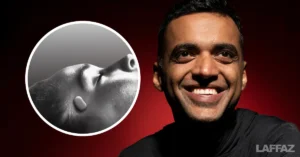A copyright lawsuit has been filed against OpenAI in New Delhi by Indian book publishers and their international counterparts, according to a representative. This lawsuit is the latest in a series of global cases aimed at preventing the ChatGPT chatbot from accessing proprietary content. Globally, courts are addressing similar claims from authors, news outlets, and musicians who allege that tech companies are misusing their copyrighted work to train AI services, and are seeking the deletion of such content.
The Federation of Indian Publishers (FIP), based in New Delhi, has filed a case against OpenAI at the Delhi High Court. Notably, the court is already handling a similar lawsuit against OpenAI, indicating a growing trend of legal challenges against the AI firm.
The Federation of Indian Publishers has filed the case on behalf of its entire membership, which comprises prominent publishers such as Bloomsbury, Penguin Random House, Cambridge University Press, and Pan Macmillan, in addition to Indian publishers Rupa Publications and S.Chand and Co.
The Federation of Indian Publishers is seeking legal action against OpenAI, demanding that the company cease accessing copyrighted content without permission. According to Pranav Gupta, the federation’s general secretary, “Our ask from the court is that they should stop (OpenAI from) accessing our copyright content.”
Gupta emphasized that if OpenAI refuses to obtain licenses, they must delete the datasets used for AI training and provide a plan for compensating the affected parties. Gupta added, “In case they don’t want to do licensing with us, they should delete datasets used in AI training and explain how we will be compensated. This impacts creativity.”
OpenAI has declined to comment on the allegations and the lawsuit, which was filed in December. The company has previously denied similar allegations, maintaining that its AI systems utilize publicly available data in a manner consistent with fair use principles.
Following the November 2022 launch of ChatGPT, OpenAI sparked a frenzy of investment, consumer interest, and corporate activity in the field of generative AI. After securing $6.6 billion in funding last year, the company is determined to maintain its lead in the AI space. Meanwhile, the Indian book publishers’ group is seeking to join forces with Indian news agency ANI in its lawsuit against Microsoft-backed OpenAI, which is currently the most high-profile legal case of its kind in India.
The ongoing lawsuits against OpenAI in India, including the one filed by the Indian book publishers’ group, are being closely watched as they have the potential to shape the country’s future legal framework on AI. According to Mumbai-based lawyer Siddharth Chandrashekhar, “These cases represent a pivotal moment and can potentially shape the future legal framework on AI in India. The judgment passed here will test the balance between protecting IP and promoting tech advancement.”
In response to the ANI case, OpenAI argued that deleting training data would put it in violation of U.S. laws and that Indian courts lack jurisdiction since its servers are located abroad.
The federation countered OpenAI’s argument by stating that since the company offers services in India, its activities should be subject to Indian laws. Separately, Reuters, which has a 26% stake in ANI, issued a statement clarifying that it is not involved in ANI’s business practices or operations.
OpenAI made its first hire in India last year, appointing former WhatsApp executive Pragya Misra to oversee public policy and partnerships in the country. India, with its massive population of 1.4 billion, is an attractive market, particularly as millions of new users are coming online, driven by affordable mobile data rates.
When a Reuters reporter asked ChatGPT for details about the first Harry Potter book by J.K. Rowling, the AI tool provided a chapter-by-chapter summary and key events summary, including the story’s climax. However, it refrained from sharing the actual text, stating, “I cannot provide the entire text of the book, as it is copyrighted material.” This response highlights the growing concerns around copyright infringement in the context of AI training. In fact, Penguin Random House has taken steps to address this issue, launching a global initiative to include a statement on the copyright page of its titles, explicitly prohibiting the use of its content for training AI technologies.
The Indian federation’s lawsuit, filed in December, claims to have obtained credible evidence from its members that OpenAI used their literary works without permission to train its ChatGPT service.
The Indian federation’s general secretary, Pranav Gupta, expressed concerns about the impact of AI chatbots on book sales. “This free tool produces book summaries, extracts, why would people buy books then?” he said, highlighting the potential threat posed by AI chatbots that use extracts from unlicensed online copies.
Gupta noted that the federation’s members are worried about the consequences of this trend, stating, “This will impact our sales, all members are concerned about this.”
The federation’s lawsuit has been listed for hearing, with a court registrar in New Delhi directing OpenAI to respond to the matter on January 10. A judge is scheduled to hear the case on January 28.






